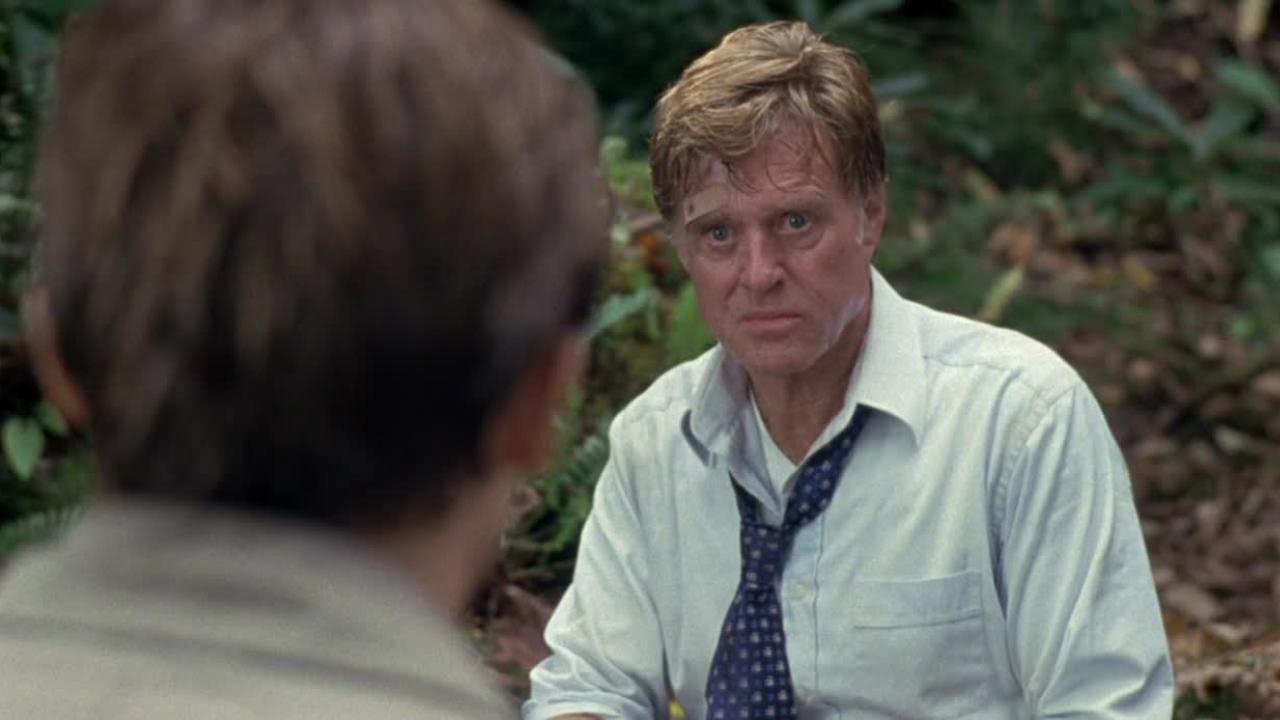As part of a housecleaning inventory, I’m restoring some ancient reviews to the site. My review of The Clearing was originally published at Christianity Today in July 2004.
Looking back, I must have been right about some things, because I haven’t heard anybody talk about this movie is more than a decade. If you’re one of its defenders, step up and persuade me to give it a second look!
The Clearing starts out like a thriller, but it is far from thrilling.
Pieter Jan Brugge’s directorial debut is watchable only for its talented cast, a trio of formidable actors who make you wonder what drew them to this particular script. It’s a kidnapping yarn that raises a lot of interesting questions and suggests myriad possibilities for conspiracy and surprise, only to cast off those concerns entirely. It ends by slumping into the territory of simple morality plays — you know the kind, where the captive rich man suddenly learns that a few of his priorities are out of whack.
Brugge, who served as producer for Michael Mann’s edgy thrillers The Insider and Heat, deals with some heavy ethical concerns here, and he’s got a lineup of seasoned actors who make the most of uncomfortable silences and emotional outbursts. But the script by newcomer Justin Haythe feels like a rough draft. The characters lack distinctive voices, fitting the typical clichés of the rich businessman (Robert Redford), the businessman’s imperious wife (Helen Mirren), and the grudge-bearing ex-employee (Willem Dafoe).

It is difficult to discuss the plot without “spoiling” what few pedestrian “surprises” it bears — but here is a restrained summary: Wealthy car-rental-business pioneer Wayne Hayes is kidnapped from the driveway of his suburban Pittsburgh home by an amateur criminal named Arnold, leaving his resourceful homemaker wife Eileen to fret over the crisis. The grown children (Alessandro Nivolo and Melissa Sagemiller) come home to furrow their brows over the scarcity of clues, and an FBI agent (Mike Pniewski) moves in to enjoy Eileen’s hospitality and muse over the identity of the kidnapper. Meanwhile, Wayne is forced to trudge hand-cuffed through rugged, rainy, forested terrain with his captor’s gun aimed at his spine. Arnold tells him there’s a cabin ahead, and that he’ll be handed over to a band of crooks who have hired him for the delivery.
The revelation that the dour, disgruntled Arnold once worked for Wayne comes early, so that’s hardly a spoiler. The biggest surprise is just how many interesting directions the storyteller refuses to go with his plot, preferring a simple and, frankly, dull series of conversations that lead to a rather bewildering outcome. Haythe’s idea of an exciting outburst runs like this: “I listened to you, goddamn it! Now you listen to me!”
By its conclusion, it has morphed from uninspired thriller into ponderous drama, but the dialogue-heavy scenes both in the woods and on the home front are plodding and even wearying. It would be a complete waste of time if the actors did not bring some intriguing subtleties to their roles. But as it is, even Mirren’s magisterial gravitas, Redford’s slow-burn intensity, and the unnerving complexities of Dafoe cannot get a fire going in this cliché-soggy kindling.
This kind of sub-level drama is the sort of thing that works in the hands of a subversive master like Roman Polanski. He did just that with a simple kidnapping plot called Frantic, the 1988 Harrison Ford mystery in which a husband goes hunting for his kidnapped wife. After stumbling into a dark and wicked Paris underworld, Ford’s character emerged a changed man, and thus what might have been a happy ending was instead marked by a discomforting chill.
Brugge doesn’t come anywhere close to such intriguing explorations. He teases us with typical thriller conventions — like the photographs of an innocent who doesn’t know she’s being watched, the wife’s discovery of her husband’s secret life, and the package from the kidnapper that holds a nasty surprise. There’s a burst of adrenalin late in the film when Eileen takes matters into her own hands, plunging into darkness to save her spouse. But these too lead to anticlimactic ends. You keep wishing Helen Mirren would transform into her Prime Suspect character, Detective Chief Inspector Jane Tennyson, track down the villain and disintegrate him with her famously contemptuous scowl.
The film’s only real cleverness comes through a style that confounds our sense of chronology until the conclusion. While days are passing at the tormented family’s home, the villain and his victim seem to be running to a different wristwatch. Thus, as the FBI relate the clues they’ve discovered and the messages they’ve received, we’re kept uncertain of Wayne’s fate, even though we find him in the very next scene trudging forward through the trees, healthy but haggard. This mildly interesting device is, in the end, just a gimmick, not part of any meaningful aesthetic. In fact, the film has little to suggest at all, beyond “Love your wife” and “Wealthy people can be hard-hearted and ignorant.”
The enigmatic smile that closes the film might have been a cynical twist, a last-minute revelation, or something deeply meaningful. Instead, it’s just one last moment of “Huh?” in a film that, while unconventional, remains lost in dark and dreary woods.